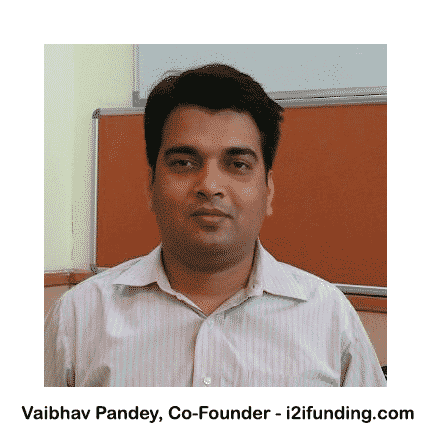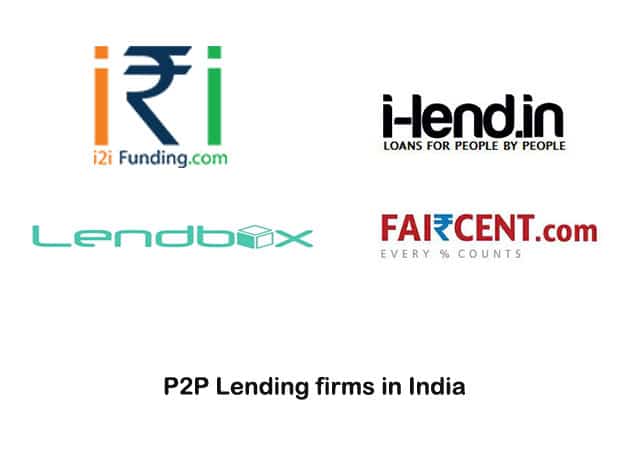1. Who are the founders of the company? Why did you start a p2p lending website?
i2ifunding is co-founded b Vaibhav Pandey, Neha Aggarwal & Manisha Aggarwal.
Vaibhav did his MBA from IIM Ahmadabad and has 10+ years of experience in growing business, setting up new processes and driving operational efficiencies. Neha completed her MBA from XIM-Bhubaneswar and graduated from SS CBS, Delhi University with distinction in Finance. She has worked on brand management in the FMCG sector also on product development in the financial sector. Manisha is a Chartered Accountant and brings with her over 8 years of domestic and overseas work experience in various fields.
I have always been looking for an idea that really creates value and benefits a large section of the population. I once came across a situation where I saw one of my colleagues borrow money from money lenders after his personal loan request was rejected by the Bank. He had to borrow at a monthly interest rate of 4%, to meet a financial emergency. This incident left me pondering about how I can provide an alternative that can help people meet their financial requirements at an affordable interest rate. This is how we started working on the concept of i2ifunding. We started our operations in October 2015 and our head office is in Noida, with another office in Mumbai.
2. Do you use a credit bureau to profile clients? If yes which one?
Yes. Right now, profiling of clients/borrowers is done on CIBIL. Whenever we receive a loan request we do a risk profiling of the borrower. We have developed a proprietary risk evaluation model to evaluate the risk involved with any borrower. This is a robust model that considers more than 30 parameters to determine the risk involved in terms of borrower’s ability to pay and also the intention to pay. Only about 20% of the loan applications are approved. Thus only quality borrowers get selected. Also, the risk involved with each borrower is transparently conveyed to lenders.
3. How do you deal with credit risks like non-repayment of loans and fraud? What percentage of loans have gone bad to date?
We conduct physical verification of borrowers before the money is disbursed. Also, we sign a loan agreement on a stamp paper along with promissory notes. We also collect 3 postdated cheques against each investor from the borrowers. During physical verification, we verify the original documents of the borrower. Some of the data which is available with third party sources gets verified independently as well. So our verification process is very tight, and we make sure that every loan that goes live on our platform is verified thoroughly. We send reminders to a borrower for the repayment of EMI’s and also follow up on the same. If the borrower does not pay the EMI then the cheque is deposited in the bank and if the cheque bounces then legal proceedings are initiated against the borrower. Till now we’ve disbursed loans worth more than Rs 75 Lakhs to the individual borrower, and there are no bad loans or delayed EMI’s from our borrowers as of now.
4. Once an investor gives a loan how are repayments collected back?
Repayments are collected in the form of monthly EMIs. Similar to how we pay EMI’s to banks, similarly borrowers pay monthly EMI’s towards their loans, which are credited to each individual investor/lender on monthly basis. Investors can not withdraw their money in between or before the completion of the loan tenure.
5. Are you planning to tie up with banks to offer loans?
Yes. We are in discussions with a few NBFC’s and banks to offer loans.
6. How do you make money? Do you charge a processing fee, I don’t think the registration charge of Rs 100 covers your operating costs?
Yes, you are right. So in order to overcome our operational expenses, we charge a one-time registration fee. An investor can invest up to 50,000/- after registration. After that, they will have to pay a fee of one percent of the amount if you want to lend on our platform. From the borrower side, we deduct a percentage of the loan amount as processing charges. We are investing a lot of time and money in setting up the technology and automating lots of manual processes in our platform. This will reduce our operational costs in the long run.
7. What is the Reserve Bank of India’s stance on Peer to Peer lending?
Currently, RBI does not regulate the P2P lending segment. In a press release on 5th April, RBI has mentioned that they will come up with a concept note to regulate this sector and later form the policies for the same in consultation with SEBI. This is a positive development from the sector and the formulation of a progressive looking framework by RBI could take the sector to an inflection point in India.
8. Who are the established players in this space whom you will be competing against?
P2p lending is a very new concept in India. Although it is a very successful model in countries like China, the US and UK. All the players in India are startups, most of them began operations in the last 1-2 years and are still trying to find their feet in this segment. We are mainly competing with Faircent, Lendbox and i-lend.
9. Are you looking to raise funding? How much of your own funds have you invested and how much are you planning to raise?
Yes, we are in advanced stages of discussion with a few angel investors for raising our first round of funding. As of now, we are a self-funded.
10. What are your plans for the future?
While P2P lending is still at a nascent stage in India, it is one of the leading means of financing in countries such as the US, the UK, Germany and China. Many p2p players like Prosper and Lending Club have grown to become billion-dollar companies. The sector has been growing by leaps and bounds all around the world, thanks to an increase in internet penetration and the growing acceptability of e-payments. In India also, I expect P2P lending to follow a similar growth trend that has been witnessed by the e-commerce industry in recent years. We currently have investors from all across the country; however, our borrowers are mainly from Delhi NCR and Bangalore. We are looking to expand to all the major cities of India in the next couple of years.


